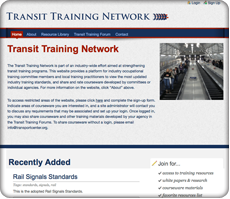Question 2
Describe how the skills of existing workers will be assessed. Identify the estimated number and percentage of workers who may be impacted by this transition as a result of new skills requirements. The assessment should include both transit technicians and bus and rail operators.
Best Practices:
Assessing Baseline Skills/Credentials
To assess the baseline skills of existing technicians, one should first consider technicians’ proficiency at diagnosing and repairing electrical and electronic (E/E) faults found on more traditional buses with 12- and 24-volts electrical systems. Technicians will not be able to effectively transition to the skills needed for ZEBs with upwards of 800 volts unless they first acquire foundational E/E skills, understanding that these are among the most difficult to obtain. Mastering E/E related tasks are far more difficult than learning more traditional job tasks. Whereas mechanical related faults are easier to diagnose, an oil leak for example can be detected visually, finding electrical faults are more difficult because electrons moving through wires cannot be seen. Furthermore, diagnosing these faults typically requires special tools and instruments.
One basic way to measure baseline E/E skills is to ask the shop floor supervisors, those who typically assign workers to jobs. Every maintenance workshop has workers who excel at diagnosing and repairing electrical faults, so-called “go-to” technicians, and shop supervisors and foremen certainly know who they are. Supervisors/foremen can estimate to some level of certainty the percentage of technicians proficient at using a DMM and other instruments to diagnose and repair electrical faults. Although not scientific, it does provide a starting point for assessing these essential foundational skills.
Another more quantifiable method is to determine those technicians that hold ASE transit bus certifications for Electrical/Electronic Systems (H6). Technicians with similar ASE electrical certifications from the automobile and heavy-truck sector should also be included and classified. ASE certifications are tests that confirm a technician’s ability to correctly answer a series of written questions related to job tasks. Many contend that this method of testing accurately reflects technical skills in specific job areas. Others maintain that passing a written test does not necessarily guarantee that a technician can actually do the work. Regardless, ASE Certifications are widely regarded in the ground transportation industry as a standardized way to classify those with requisite job skills. In addition to ASE certifications, E/E training provided by the agency, vendors, technical schools and community colleges, previous employers, and third-party training providers should be included in the skills assessment mix.
Once technicians’ baseline E/E skills are assessed, agencies can move on to assessing technician knowledge and skills in specific ZEB related technologies. More information on this will be covered in Question 3.
Estimated Number of Workers Impacted
The number of workers who stand to be impacted by the transition to ZEBs depends on how agencies structure their maintenance workforce. While some require technicians to work on all maintenance tasks, some have their technicians specialize in specific job areas such as brakes, preventive maintenance (PM) inspections, engines, etc. Based on whether technicians will be specialized or not, the first step in this process is to determine the total number of technicians that the agency expects will work on ZEBs. As mentioned earlier, the pool of these workers should first be expected to have a solid set of prerequisite E/E skills as determined by skill gap survey results, ASE electrical certification, and/or are recognized by shop supervisors/trainers/leads as possessing these skills. Labor and management should the jointly develop the criteria for establishing acceptable levels of foundational E/E skills. Those expected to work on ZEBs who do not yet have the requisite skills will require additional training to bring their skills to an acceptable level, and therefore will be impacted by the transition.
Given that the demand for ZEBs will increase, agencies should consider bringing all technicians to an acceptable level of foundational E/E skills. Doing so will not only help with transition to ZEBs but will also help with the repair of traditional buses where virtually every system has an electrical element to it.
It is safe to assume that those technicians who meet the criteria for possessing baseline E/E skills will also be impacted by the transition in that they will need some level of ZEB training to acquire needed skills. Those with existing hybrid-electric skills will need less training, as these buses already have electric propulsion; those without hybrids will need more. Regardless, all will need familiarization training, safety training, and training related to the unique features found on ZEBs.
Agencies may want to consider estimating the number of workers impacted by the transition by classifying them by the following training requirement areas:
- Basic E/E Training
- Multiplex Training
- Advanced E/E Training
- Basic ZEB Training
- Advanced ZEB training
In summary, it is expected that all technicians may be impacted by the transition to ZEBs. All may need some level of E/E training to bring them up to an acceptable E/E level of proficiency or will require training related specifically to ZEBs. These training demands will decrease over time as skills are developed, but certainly in the near term, it is expected that all technicians will need some form of training to become proficient at maintaining and repairing ZEBs. Using the results of skill gap analyses to categorize training needs by the classifications identified above will help quantify the impact.
Best Practice Examples:
- See Skills Gap Survey and Analysis covered under Question 3
